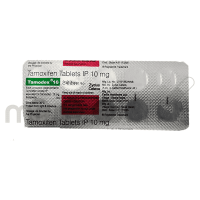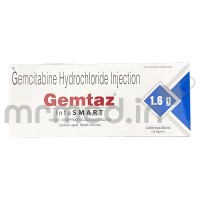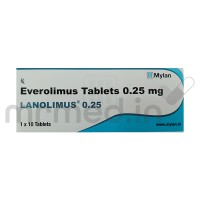Bupicaine 0.25%/20ml Injection contains the active component Bupivacaine hydrochloride. It is a local anesthetic medication used for various medical procedures to numb a specific body area. It is commonly administered by injection near nerves to relieve pain during surgical procedures, childbirth, or other medical interventions. This anesthesia belongs to the class of drugs known as amide-type local anesthetics. It can be employed for surgical procedures, including orthopedic surgeries, cesarean sections, and dental procedures. It may also manage chronic conditions like postoperative pain or certain chronic pain syndromes. This medication should not be administered if there is an active infection at the intended injection site.
Bupicaine 0.25%/20ml Injection should not be used in individuals with known hypersensitivity or allergic reactions to bupivacaine or any other amide-type local anesthetics. Allergic reactions can range from mild skin reactions to severe anaphylaxis, a life-threatening allergic response. Bupicaine 0.25%/20ml Injection can affect the electrical conduction system of the heart. It with known hypersensitivity or allergic reaction to bupivacaine or any other amide-type local anesthetics is contraindicated in individuals with pre-existing heart block, which is a condition where the electrical signals in the heart are blocked or delayed. Before the treatment, you must inform your physician if you have heart problems, brain disorders, severe headaches, anemia, infections, tumor, or recent trauma. Discuss with your health care professional if you are on a salt-controlled diet, as this medication contains sodium.
Therapeutic Effects of Bupicaine 0.25% Injection 20ml
Pregnancy
The use of Bupicaine 0.25%/20ml Injection during pregnancy should be discussed and determined by a healthcare professional experienced in obstetric anesthesia. They will consider the specific circumstances, the patient's medical history, and individual factors to make an informed decision.
Breast Feeding
The safety of Bupicaine 0.25%/20ml Injection during breastfeeding is not well studied, and it is recommended to exercise caution.
Lungs
Suppose you have a pre-existing lung condition or are concerned about the safety of the Bupicaine 0.25%/20ml Injection in your lungs. Consulting with your healthcare provider for personalized advice is recommended in that case.
Liver
If you have a liver condition or are concerned about the safety of Bupicaine 0.25%/20ml Injection, it is recommended to consult your healthcare provider for personalized advice.
Alcohol
Alcohol consumption may increase the risk of certain side effects associated with Bupicaine 0.25%/20ml Injections, such as dizziness or stomach irritation.
Driving
Bupicaine 0.25%/20ml Injection may cause dizziness or drowsiness in some individuals. If you experience these side effects, avoiding activities requiring mental alertness, such as driving or operating machinery, is important.
Serious:
- Severe allergic reactions (rash, itching, swelling, severe dizziness, difficulty breathing)
- Decreased blood pressure
- Cardiac arrest
- Neurological effects (numbness, tingling, or muscle weakness)
- Respiratory depression
Common:
- Nausea and vomiting
- Dizziness or lightheadedness
- Headache
- Shivering or tremors
- Temporary numbness or weakness in the area where the medication was administered
- Back pain or discomfort (associated with epidural use)
- Itching or rash at the injection site
- Transient changes in blood pressure or heart rate.
This medication may interact with other medications, including certain antiarrhythmics, calcium channel blockers, and beta-blockers. These interactions can potentiate cardiac effects, increasing the risk of arrhythmias or other cardiac complications. Specific pediatric dosing guidelines should be followed, and caution should be exercised to avoid overdosing or accidental intravascular injection. Do not hesitate to contact your healthcare provider for guidance if you experience any unexpected or concerning symptoms after receiving it or other medications.
Bupicaine 0.25%/20ml Injection is primarily used as a local anesthetic for medical procedures, such as surgeries, dental procedures, or labor pain relief. Its use for cosmetic purposes, such as dermal fillers or facial rejuvenation, is less common and may vary depending on the situation.
While Bupicaine 0.25%/20ml Injection can potentially cause seizures as a rare side effect, it is generally considered safe for patients with a history of seizures. However, the healthcare professional will carefully evaluate the patient's medical condition, seizure control, and the potential risks versus benefits.
The duration of the anesthetic effect of Bupicaine 0.25%/20ml Injection can vary depending on the specific formulation and administration technique. The effect can typically last several hours, providing prolonged pain relief. However, it is important to note that the duration of action can vary among individuals and may be influenced by factors such as the site of administration, dosage, and individual response.
When administered by trained healthcare professionals, Bupicaine 0.25%/20ml Injection is generally safe for use in pediatric dental procedures. However, specific dosage considerations and age-appropriate formulations should be followed. The healthcare provider will carefully assess the child's needs, considering the procedure's complexity, duration, and overall health status.
Bupicaine 0.25%/20ml Injection is generally not used for eye surgeries due to the potential risks associated with its use near the eye. Instead, ophthalmic surgeons typically use specific ophthalmic local anesthetics specifically formulated for eye procedures and have a better safety profile.
Bupicaine 0.25%/20ml Injection can potentially cause life-threatening side effects such as severe allergic reactions (anaphylaxis) and respiratory depression. Anaphylaxis can lead to difficulty breathing, swelling, and a drop in blood pressure. Respiratory depression can result in slowed or inadequate breathing, leading to oxygen deprivation. These side effects require immediate medical attention to prevent serious complications or loss of life.
Molecule name: Bupivacaine hydrochloride | Therapeutic class: Anesthetic Agent |
Pharmacological class: Amide Local Anesthesia | Indications: 1. Anesthesia for surgical procedures 2. Labor and delivery 3. Chronic pain management |















